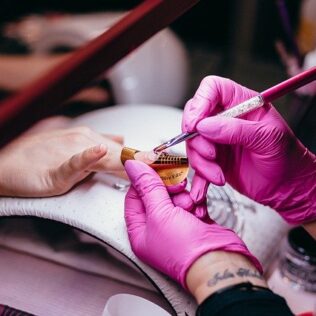As businesses begin to reopen, many nail salons, spas, and health clubs are requiring customers to sign COVID-19 liability waivers, but legal experts warn that such waivers may not be enforceable.
Do Liability Waivers Provide Protection?
Businesses that perform close contact personal services, such as nail salons, hair salons, spas, and health clubs, are asking customers to sign COVID-19 liability waivers before businesses perform services. These waivers are meant to protect businesses from liability if a customer contracts COVID-19 while on their premises. However, legal experts say these documents do not hold much weight and are non-enforceable in a court of law.
COVID-19 liability waivers ask the signer to acknowledge a certain amount of risk before receiving services. Waiver liability forms are commonly used by businesses that provide high-risk activities, such as skydiving, hang gliding, skiing, snowboarding, and bungee jumping. In high-risk activities, the participant has a greater risk of illness, injury, or death. Since the COVID-19 pandemic has caused so many illnesses and claimed so many lives, businesses are trying to protect themselves from lawsuits filed by personal injury lawyers, if a customer contracts the virus.
A liability waiver is not a legally binding agreement until it is upheld by the court. Despite signing a waiver, if a customer contracts COVID-19, they may still pursue a lawsuit. It is up to the court to decide whether to enforce the waiver. Proving causation and tracing COVID-19 infection directly back to a specific business may be a difficult task.
Liability waivers are designed to protect against negligence. If a business fails to enforce the use of a mask or social distancing measures, the business may be held liable for negligence. However, if rules are enforced, but the customer refuses to follow them, the business cannot be held liable.
COVID-19 liability waivers do not provide businesses with complete blanket immunity from lawsuits by personal injury lawyers, but waivers may limit or prevent certain liability from negligence lawsuits. Many liability waivers are drawn up using standard templates, rather than by an attorney. These types of waivers use general language and blanket protections that are not tailored to a specific business.
With an increase in COVID-19 related lawsuits, businesses are concerned about liability for COVID-19 illness and injuries. A rise in the use of COVID-19 liability waivers is clear evidence that businesses are taking precautions. Businesses and customers must be aware of implications and risks in a liability waiver before moving forward.

